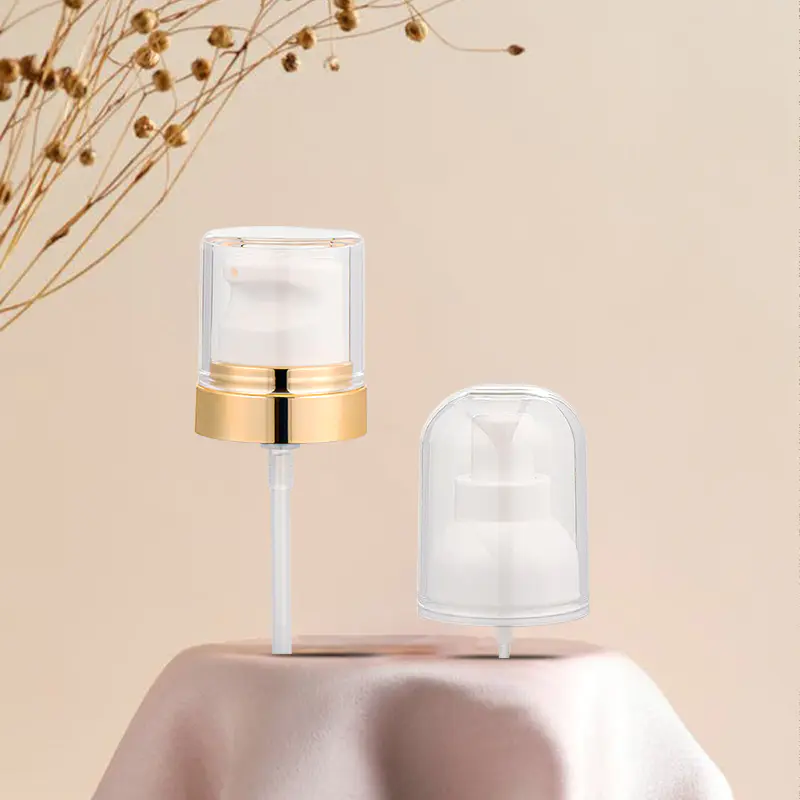Electrochemical Aluminum Mist Spray Pump

1. Application of environmentally friendly materials
In the manufacturing process of Electric Aluminum Spray Pump, the selection of materials is crucial. Traditional spray pumps may use materials such as plastics and rubber that are not very environmentally friendly, while modern environmentally friendly spray pumps begin to focus on the use of recyclable, low-pollution or non-toxic materials.
1. Use of aluminum
As the main shell material of Electric Aluminum Spray Pump, aluminum has high strength and corrosion resistance, and is a recyclable material. In the production process, the recycling rate of aluminum is high and it can effectively reduce resource waste. The use of aluminum not only improves the durability of the equipment, but also reduces environmental pollution caused by material corrosion. Compared with other metals, the production process of aluminum consumes less energy and can be used sustainably.
2. Non-toxic and environmentally friendly spray liquid
Many Electric Aluminum Spray Pumps are usually used in agriculture or horticulture, spraying chemicals such as pesticides and fertilizers. When designing products, environmentally friendly spray pumps need to consider the safety of the spraying liquid, and try to use non-toxic, low-corrosive and highly biodegradable liquids. This not only reduces environmental pollution, but also effectively avoids the long-term negative impact of spraying liquid on water sources, soil and air.
3. Use of low volatile organic compound (VOC) materials
For the seals, pipes and internal components of the spray pump, the use of low volatile organic compound (VOC) materials can not only reduce the emission of harmful substances, but also improve the environmental friendliness of the product. The reduction of VOC can effectively reduce air pollution and help improve the use environment.
2. Energy-saving design and high efficiency
Electric aluminum spray pumps are gradually introducing energy-saving concepts in their design to reduce power consumption and resource waste. Energy-saving design can not only improve the working efficiency of the pump, but also reduce overall energy consumption, which helps promote sustainable development.
1. High-efficiency motor and intelligent adjustment
Modern electric spray pumps often use high-efficiency motors, combined with intelligent adjustment functions, to automatically adjust power output according to work needs. Under low load conditions, the device will automatically reduce power consumption to reduce power waste. This intelligent energy-saving design can effectively extend battery life, reduce charging frequency, and save energy.
2. Sustainable use of batteries
With the continuous advancement of battery technology, the batteries of electric aluminum spray pumps are gradually developing towards high energy efficiency and long life. The use of more advanced lithium batteries not only reduces the charging time and number of charging times, but also increases the number of battery cycles and reduces the negative impact of waste batteries on the environment. In addition, the recycling technology of lithium batteries is also constantly improving, so that waste batteries can be recycled and reused more effectively, reducing the environmental burden.
3. Water saving and precise control
The electric spray pump has a precise spray control system that can automatically adjust the spray volume and spray area. This precise control can reduce overspraying and avoid wasting water resources and other liquids, further reflecting sustainability. Especially in agricultural and horticultural applications, precise spraying not only reduces the amount of liquid used, but also ensures effective coverage of the liquid and reduces environmental pollution.
3. Product life cycle management and recyclable design
Product life cycle management is an important aspect of promoting sustainability. The design of the electric aluminum spray pump should not only focus on the energy consumption during its use, but also consider the environmental impact of its production and disposal stages.
1. Extended service life
The service life of the electric spray pump has been significantly improved by selecting high-quality aluminum alloy materials and durable motor design. High durability can not only reduce the waste of resources caused by frequent equipment replacement, but also reduce the impact of waste equipment on the environment.
2. Recyclable design
The environmentally friendly electric aluminum spray pump emphasizes the recyclability of the product. In the design stage of the product, attention is paid to the selection of materials so that each part of the equipment can be easily disassembled and recycled. The aluminum alloy shell can be recycled and reused to reduce the waste of metal resources. In addition, the battery, pipes, nozzles and other parts are also designed to be easy to disassemble for easy recycling and disposal.
3. Encourage recycling and reuse
Many manufacturers have begun to implement product recycling plans when selling electric spray pumps, encouraging consumers to recycle when the equipment is scrapped. These recycled equipment can not only reuse parts, but also refine valuable metal materials and plastic materials again, reducing the waste of resources.
4. Reduce carbon footprint and optimize the production process
The carbon footprint in the product production process is one of the key factors affecting environmental friendliness. In order to reduce carbon emissions, manufacturers have adopted a number of environmental protection measures in the production process of electric aluminum spray pumps.
1. Green manufacturing
Many electric spray pump manufacturers have begun to pay attention to green manufacturing processes. Optimize production processes, reduce energy consumption, reduce waste gas emissions, and introduce environmentally friendly equipment to reduce environmental pollution during production. In addition, using sustainable energy (such as solar or wind energy) for production is also a way to reduce carbon emissions.
2. Lean production and waste management
The concept of lean production emphasizes the efficient use of resources and the minimization of waste. In the production process, by optimizing the design and process flow, the waste of materials is reduced. Waste can not only be recycled, but also through other green treatment technologies such as wastewater treatment and waste gas purification, to minimize the environmental burden in the production process.


Custom Plastic Emulsion Pump: Technological innovation and intelligence lead the new trend of the industry

Importance of high-quality sealing and anti-corrosion design in Custom Plastic Emulsion Pump
News Categories